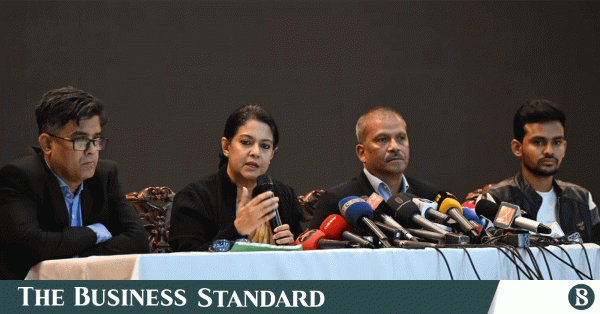The interim government will hold discussions with political parties next month on implementing the proposals made by various reform commissions, Adviser Syeda Rizwana Hasan said today (15 January).
Earlier in the day, the reform commissions on election, constitution, Anti-Corruption Commission, and police handed summaries of their proposals to Chief Adviser Professor Muhammad Yunus.
“The reform commissions have requested an additional month, so formal discussions are expected to begin in mid-February,” she said during a press conference organised by the CA’s Press Wing at the Foreign Service Academy to brief the media on the reform proposals.
The environment, forest, and climate adviser said the commissions will now convene to determine the next steps and prioritise sectors for reform. They will also coordinate the proposals from all reform commissions.
“To facilitate this process, the commissions’ terms will be extended by an additional month. During this period, they will collectively develop a roadmap outlining the prioritised sectors and corresponding reforms,” she added.
Law, Justice, and Parliamentary Affairs Adviser Asif Nazrul, at the same event, added that if the reform commissions complete their work earlier, formal discussions could begin as early as the first week of February.
Three advisers, including Asif Mahmud, attended the briefing and emphasised the government’s commitment to implementing the reform commission’s proposals across various sectors to address the aspirations of the July mass uprising and the needs of the people.
They noted, however, the implementation of these reforms requires the support of political parties. The timing of the next parliamentary election will depend on the extent of reforms agreed upon by these parties.
If minimal reforms are pursued, the general election could be held by December. However, if the government proceeds with the desired level of reforms, the polls may be delayed until June next year, the advisers explained.
Asif Nazrul outlined four stages of the reform process. In the first stage, the reform commissions prepare reports and recommendations. The second stage involves discussions to establish consensus among political parties based on these recommendations.
To facilitate this, a national consensus commission, led by the chief adviser, has been formed, with the heads of the six reform commissions as its members.
“In the third stage, we will draft laws and policies based on the achieved consensus. Implementation will follow in the fourth stage,” Asif Nazrul explained.
He expressed optimism about completing the reform process but emphasised that progress depends largely on consensus among political parties.
“If minimal reforms are prioritised, elections can be held this year. However, achieving the expected level of reforms may extend the timeline until June 2026,” he said.
The adviser said discussions with political parties will be conducted based on the reform commissions’ recommendations, and the government will implement the proposals agreed upon through these dialogues.
Youth and Sports Adviser Asif Mahmud emphasised that the primary demand of the mass uprising was the abolition of the fascist system, with reforms being a crucial step toward achieving this goal.
He noted that some reform commissions have gathered input from over one lakh people, reflecting the aspirations of the July mass uprising and the broader desires of the country’s citizens.
Mahmud, who also served as a key coordinator of the student movement that later escalated into the uprising, underscored that reforms will be implemented through discussions and consensus with all political parties and called for everyone’s cooperation in this effort.
When asked about the progress of the July genocide trial, Law Adviser Asif Nazrul assured, “The trial will take place, and the process is progressing smoothly. The International Crimes Tribunal is advancing the proceedings, and hearings are set to begin next March. It will be possible to complete proceedings in the trial court.”
When asked whether the interim government has the mandate to reform the constitution, given that it is a political process, Rizwana Hasan responded that implementing the aspirations of the mass uprising within the constraints of the current constitution would be challenging.
She emphasised that the government is operating in the spirit of the mass uprising and assured that no reforms would be implemented without the input of political parties, civil society, experts, and the general public.
“If there is unanimous agreement, the question of whether the interim government has the constitutional authority to enact reforms becomes irrelevant,” she added.
In response to whether the opinion of the Awami League, which has not been banned, will be considered in discussions on the reform proposals, Asif Nazrul said, “It is not the government’s intention to ban political parties. There is a law that provides for banning political parties if they commit genocide or engage in other unlawful activities.”
“The constitution addresses war crimes. The trial process for many incidents is ongoing, and the government is monitoring these proceedings. The fact that no political party has been banned does not mean it will not happen in the future. There will be ample time for such decisions,” he added.
Shafiqul Alam, press secretary to the chief adviser, was also present at the briefing.


